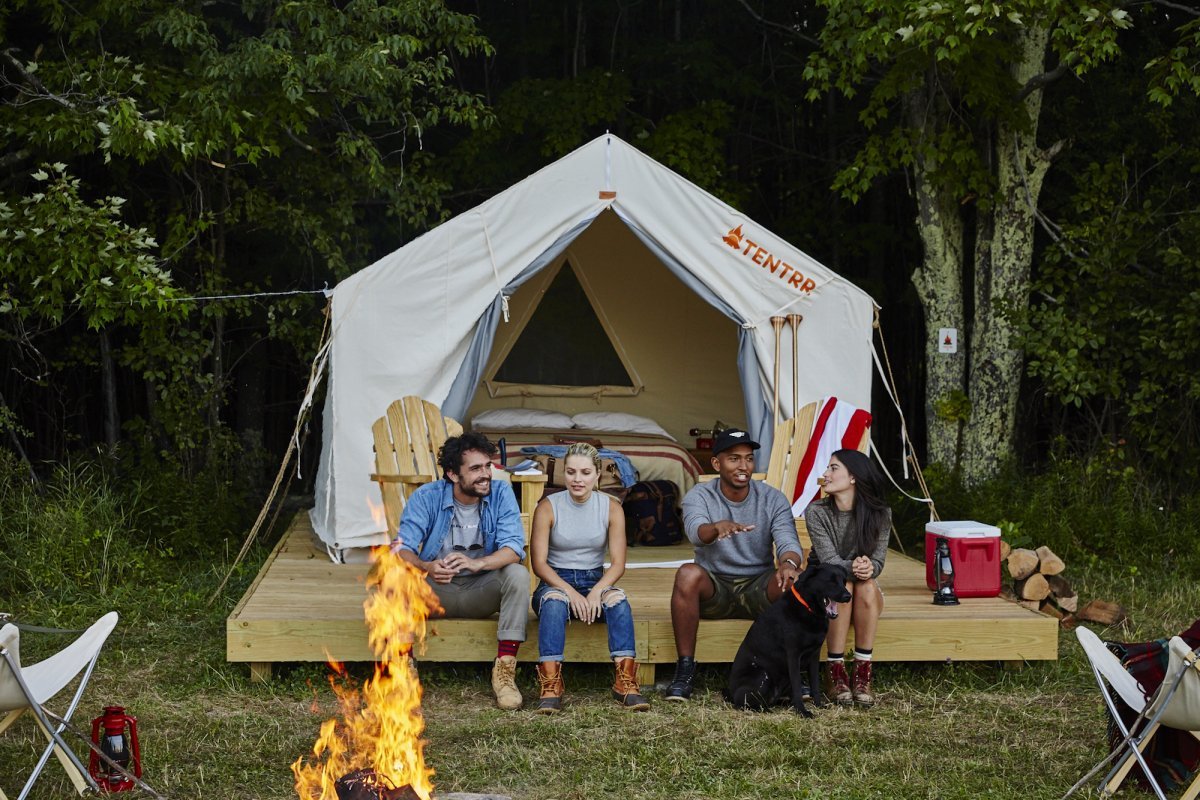
The 10X Rule for innovation sets a bar that’s simple to understand but very difficult to achieve. The rule roughly states that in order for customers to switch from a current behavior, they need a new option that’s 10X better.
The value of this concept is in how well it captures the cost to switch. When a customer considers a switch to a new offering, they don’t see:
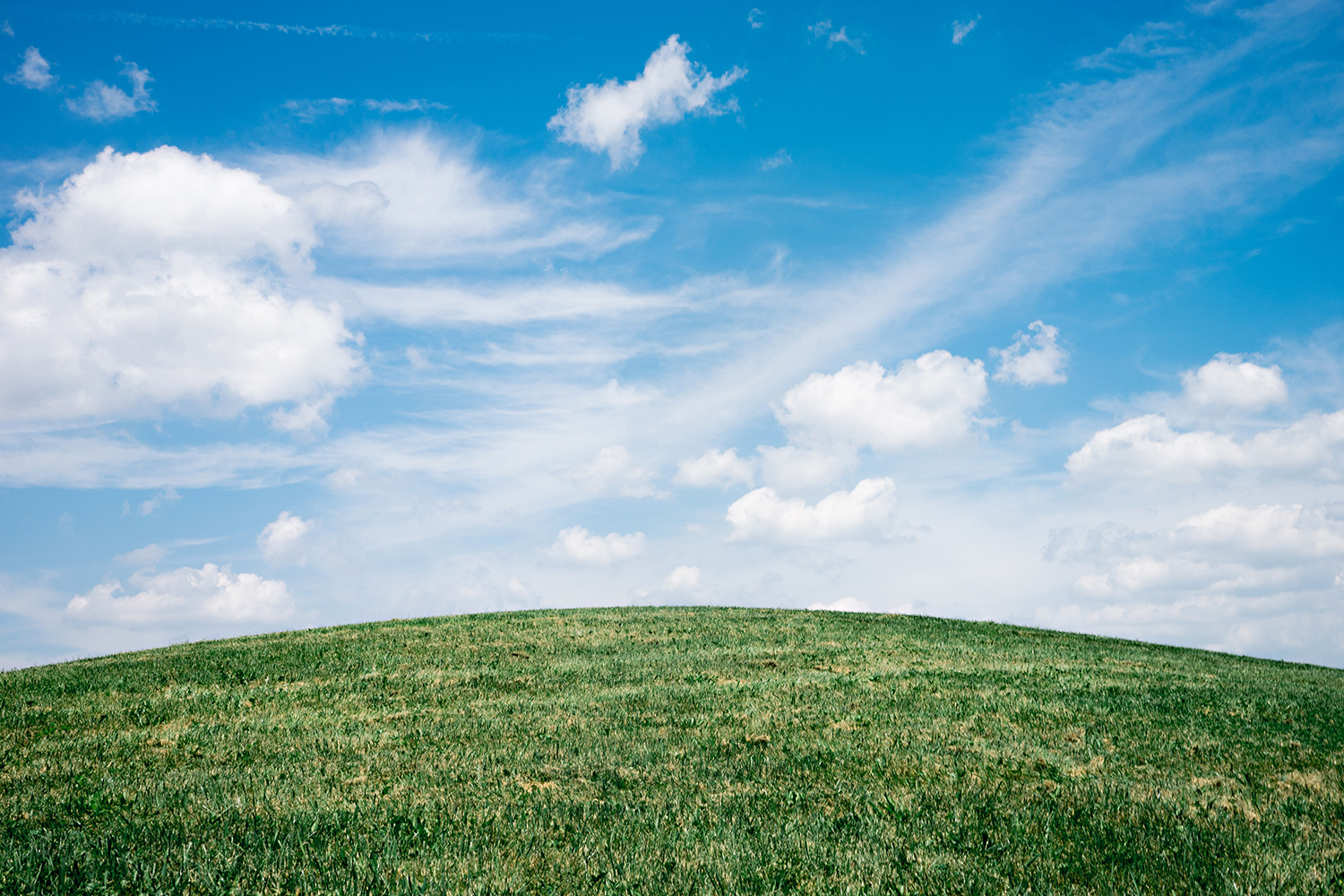
They see:
That mountain is the mental and emotional effort it takes to switch from a current behavior to a new one.
And you know what’s easier than climbing a mountain? Not climbing a mountain.
There has to be something amazing at the top to commit to that journey. To even get started there has to be the promise of something way better. Not 10% better, 10X better.
Sometimes we get forced up the mountain. Anyone who’s been on a team that adopted a new process or software tool has seen this. The endless moans and complaints you heard were the sounds of people as they were dragged up the mountain against their will.
For an individual, it’s rare to even entertain the notion of it. Most rejections take a matter of seconds. The promise of the reward often can’t compete with the cost of the journey.
With all that in mind, let’s look at a new service to see how it measures up against the 10X mountain.
How much better can you make camping?
Tentrr is a new type of camping experience. It’s sort of a glamping (though they don’t like that term) meets Airbnb type experience.
Tentrr sets up standardized, permanent tents on private land for people to rent. The landowners get 80% of the rental fees while Tentrr gets 20% along with various booking fees.
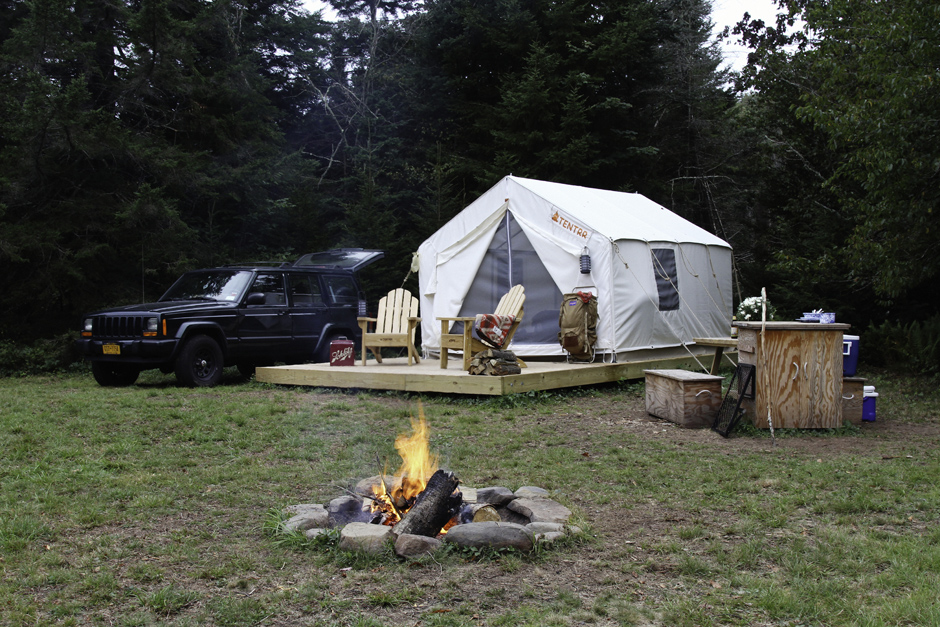
(A Tentrr campsite, via EscapeBrooklyn)
Per their marketing, they only select locations that are scenic and secluded. The idea is that you get a camping experience that emphasizes ease-of-use and privacy. They want it to feel like a true escape. A chance to enjoy the outdoors and each other, without big crowds.
Overall, it sounds good. I’ve camped my whole life and have done everything from cabins, to popups, to tents. In fact, I was doing just that a couple weeks ago in Joshua Tree:
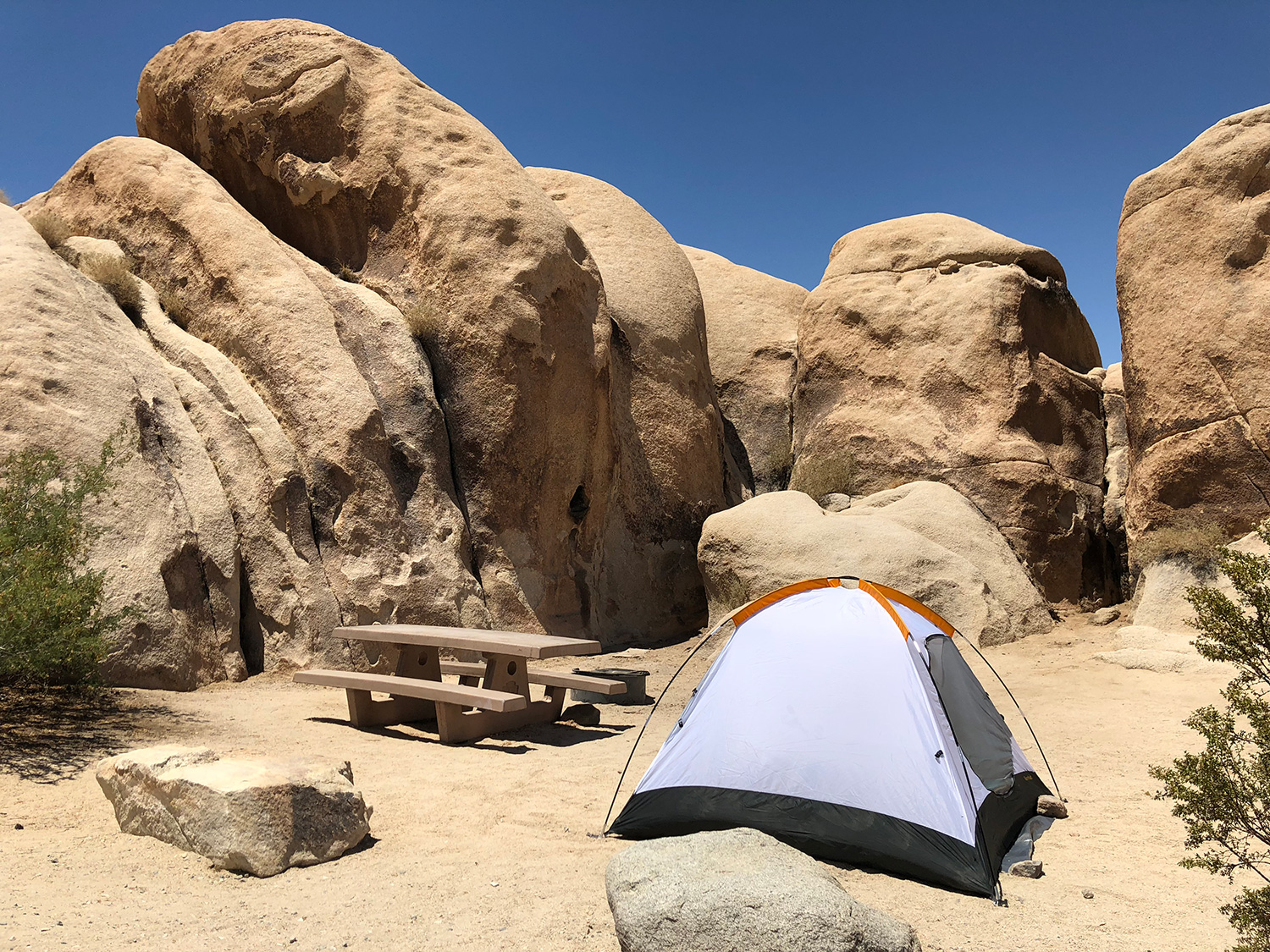
The question then, per the intro, isn’t whether it sounds good. The question is whether it sounds great — 10X great.
How strong is the value proposition as an alternative to traditional camping? Or simply as an alternative vacation concept?
Let’s look at how Tentrr compares to traditional camping and whether it can make a case for someone to switch.
To do this we can use the Elements of Value pyramid. These are 30 factors that motivate consumer behaviors. You can learn more about the Elements of Value in our Field Guide.
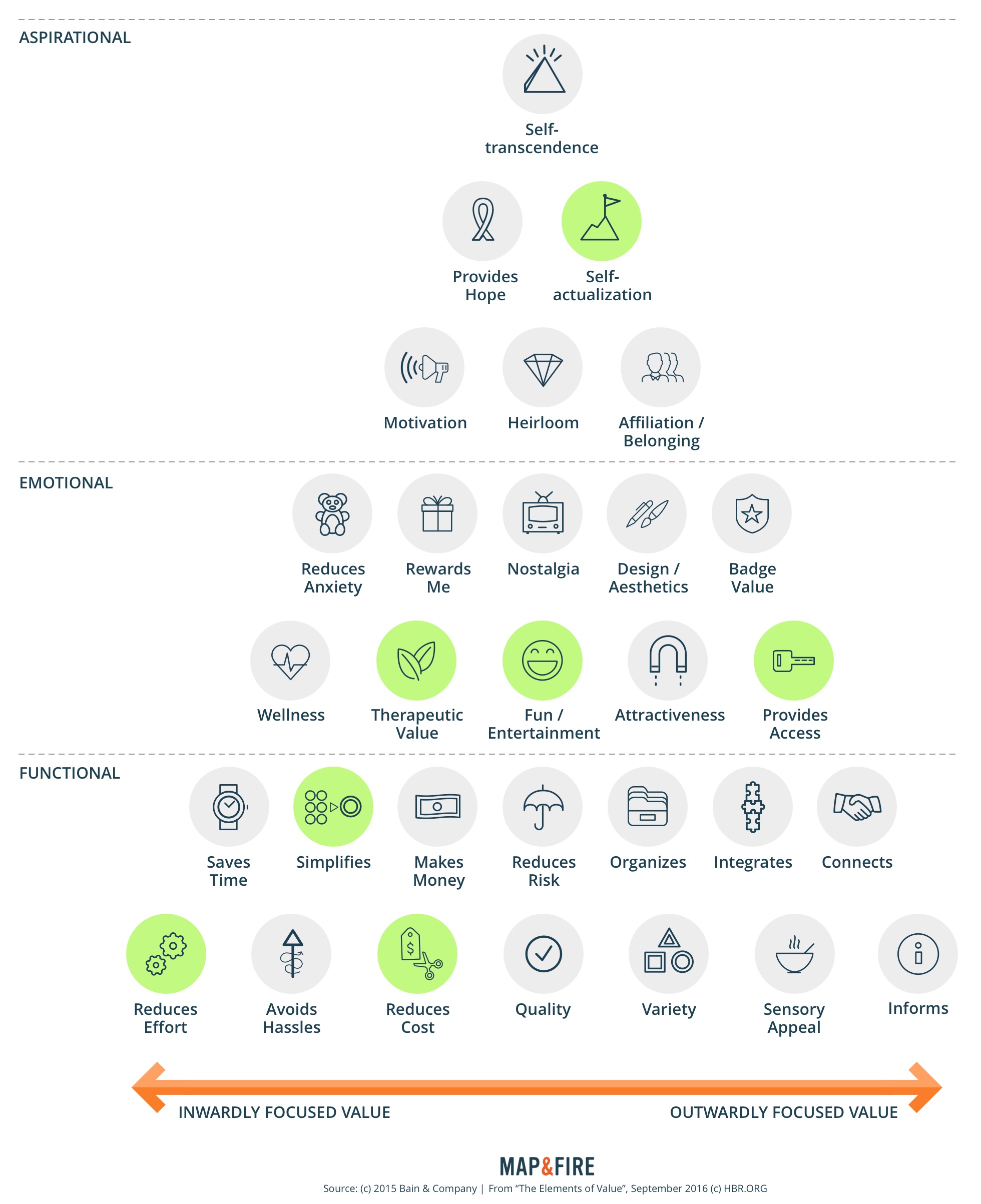
I’ve highlighted 7 elements in green that are the most relevant to Tentrr:
Simplifies
Booking a campsite the traditional way can be a pain the ass. There aren’t consistent standards for campsites in terms of how far in advance you can book or which website to use for booking.
Every park has different amenities, so it can also be confusing to know what you need to bring or not.
Tentrr is strong here because they have a straightforward, consistent booking system and all their sites are standardized.

Reduces Effort
Tentrr sites include quite a few standard items, but not as much as you might think. The tent and bed are the big ones, no doubt. Specifically, not having to set up a tent is a nice perk. The chairs and storage container are cool as well.
But most of their other items are standard at lots of campsites: fire pit, grill cover, picnic table, access to bathrooms.
And then you still have to bring all the other standard camping gear: sleeping bags / bedding, cookware, food, cooler, ice, pots, pans, coffee pot, cooking utensils, plates, cups, toilet paper, towels, firewood, matches, flashlights, lanterns, bug spray, etc.
This is not a made-for-you camping experience. You don’t just show up and camp.
In fact, because you need a vast majority of the items you need on any camping trip it’s hard to argue this is a drastic improvement.

Provides Access
This one has two distinct aspects to it:
- All of their sites are on private land intentionally designed to provide privacy. This means you get access to your own little chunk of nature that you can’t otherwise use. This means you avoid the crowds. Great!
- On the flip side though, there’s a reason why big campsites are where they are — location. They provide access to some of the most awesome and scenic places on the planet. Yes, there are other people there but it’s because the sights are that good.
That’s a tough one to call and of course will depend on individual preferences. Due to the full exclusivity of Tentrr sites, they get an edge.

Reduces Cost
This is one of the biggest challenges with Tentrr in terms of a head-to-head comparison with traditional camping. In the context of camping, it’s expensive.
A majority of their sites are in the $125 — $140 / night range. The high end options creep into the $175 — $200+ / night range. There’s a 15% booking fee on top of that.
They have a 2-night minimum stay on weekends as well.
Standard campsites are often more in the $15 — $30 / night range. On the higher end they might go up to $50 / night.
In other words you have to pay around 4X — 10X more for a Tentrr site.
This means you could actually buy a new tent that you can reuse and rent a standard site for the cost of a Tentrr.
Of course a lot of people using this service may be first time campers, or folks who compare this experience with a standard getaway versus traditional camping. For that segment, their willingness to pay would likely skew much higher. Their points of comparison might be an Airbnb or another type of hotel.
If we look at the segments collectively, it seems reasonable to call it equal.

Fun / Entertainment
Tentrr’s goal is to sell an experience. They want customers to have more time to focus on their environment, activities, and the people they’re with rather than logistics.
In addition, they want to provide something unique and memorable.
There’s room for debate on whether it’s more fun to be in a private space on someone’s woodsy farm land, versus the attractions of a state or national park.
No matter what there’s still an adventure element. Being outside and in nature is bound to provide some fun memories to look back on.
The novelty of a space that very few others have explored also provides a bump on the adventure meter.

Therapeutic Value
If your goal is to relax, unplug, and recharge Tentrr’s privacy component is a big plus.
In general, I would say campers are respectful of one another. Most parks provide decent space per campsite and enforce rules around excessive noise, etc.. But it’s still unpredictable. One rowdy group can severely detract from an otherwise chill vibe.
The guarantee of an isolated space with plenty of surrounding land pretty much guarantees you’ll have have as much distraction-free time as you want.

Self Actualization
How does Tentrr affect your view of who you are as a person compared to traditional camping?
One of the special aspects of camping is that you do come away feeling like you accomplished something. On some level you prove to yourself that you can survive and be happy without standard comforts. You’re tough. You’re open to new experiences. You’re OK spending time in your own head.
The question is, how much do those elements depend on the full DIY camping experience? If you stay in a permanent tent with a soft bed, do you still feel like you pushed yourself?
This will depend a lot on the person. Again, experienced campers may see this as a nice, easy break. First time campers may see this as a big adventure.
The bottom line is that on a whole it’s not so different from traditional camping. You probably walk away with roughly the same benefits.

Final Tally
If we look at the average of all these elements we end up just above a 5X advantage over traditional camping.

That’s a strong overall value proposition.
A big factor in this too is how much weight Tentrr’s customers put on those different elements. Hardcore, experienced campers may be more influenced by price and less interested in reduced effort.
But for first-time-campers escaping the big city: Simplicity + Privacy = 10X 🙂

With focus on the right customers, you see how the value proposition becomes much more appealing.
The takeaway here is to show how we can use these elements to breakdown an offering and compare it against the competition. Where do you have the biggest advantages to encourage your customers to switch?
Tentrr isn’t on the west coast yet, but it’s coming soon. I think I’m intrigued enough to give it a shot.


